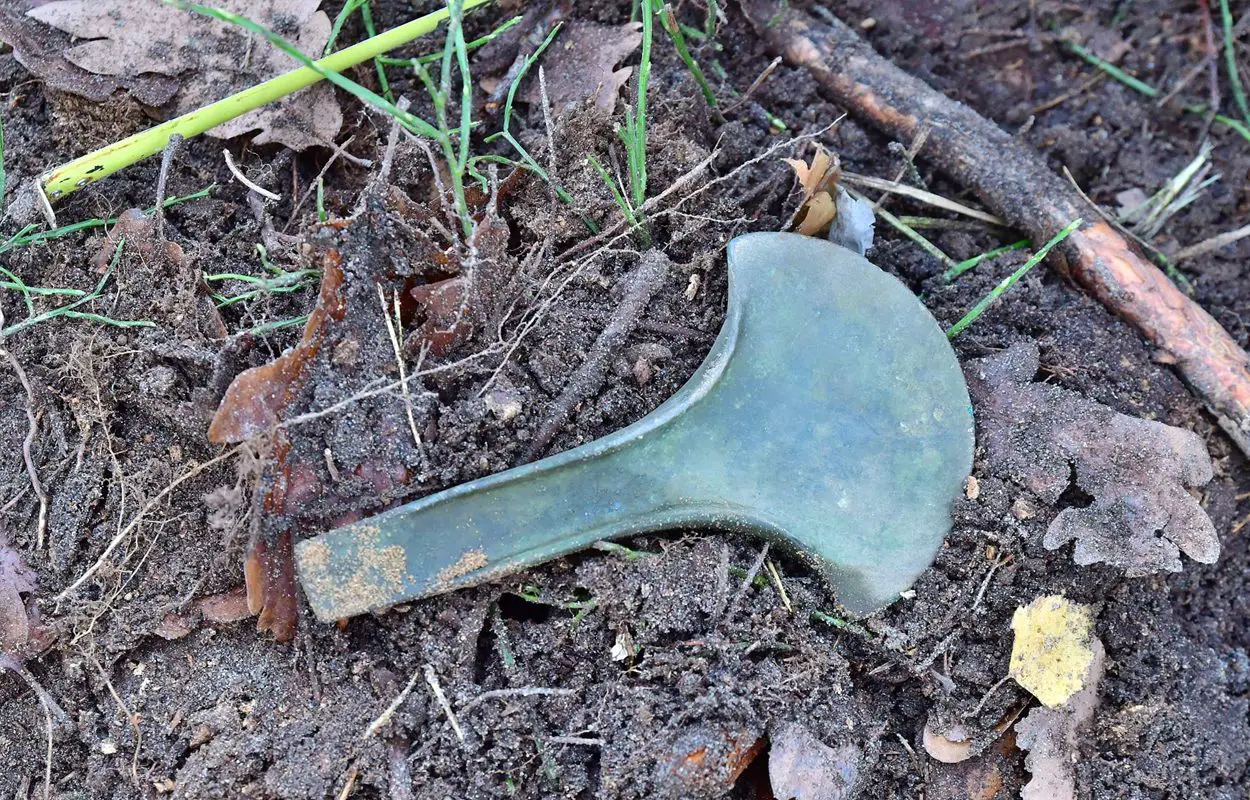According to an announcement by the Pomeranian Provincial Conservator of Monuments, archaeologists have discovered five Bronze Age axes in Starogard Forest District, located in Kociewie, Poland.
The initial discovery was made by history enthusiast, Denis Konkol, who notified local authorities from the Pomeranian provincial conservator of monuments. In Poland, it is forbidden to conduct an amateur search for artefacts using a metal detector, either for commercial or for personal use unless licensed by local authorities, requiring all finds to be reported which become the property of the state.
Upon inspection of the discovery site, archaeologists found five axes within a radius of several dozen metres at a depth of 20 to 30 centimetres beneath a layer of turf and humus.
Igor Strzok, Pomeranian provincial conservator of monuments, said: “The extraction of these finds took place under the archaeological supervision of our colleagues from the Provincial Office for the Protection of Monuments. This means that we prevented possible destruction of the site.”
The five axes date from between 1700 and 1300 BC and were likely a ritual deposit of a cult nature, however, the archaeologists haven’t ruled out that the axes could also be a deposit related to trade.
According to the announcement, the objects are tautušiai type axes associated with Baltic cultures from today’s Lithuania or north-eastern Poland. Defined by their considerable size, the axes feature a slim handle with raised edges and a wide blade.
Previous excavations of Bronze Age sites in the region generally find bracelets or breastplates, while the most recent unearthing of a weapon or Bronze Age tool dates back 20 years, highlighting the scarcity of such finds in the region.
The axes are scheduled to be transported to the Archaeological Museum in Gdańsk, where experts will conduct a thorough examination.
Header Image Credit : Stargard Forest District





